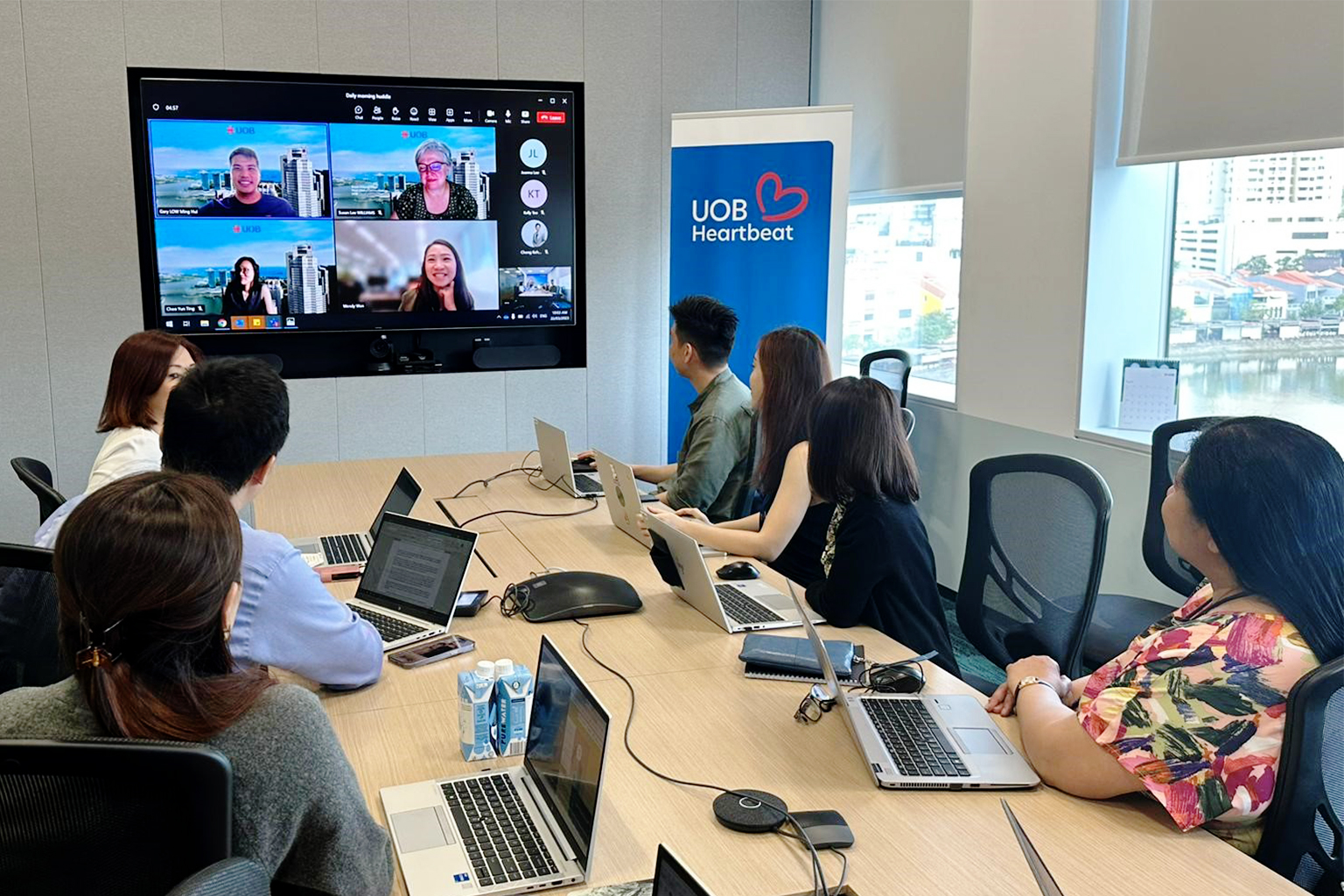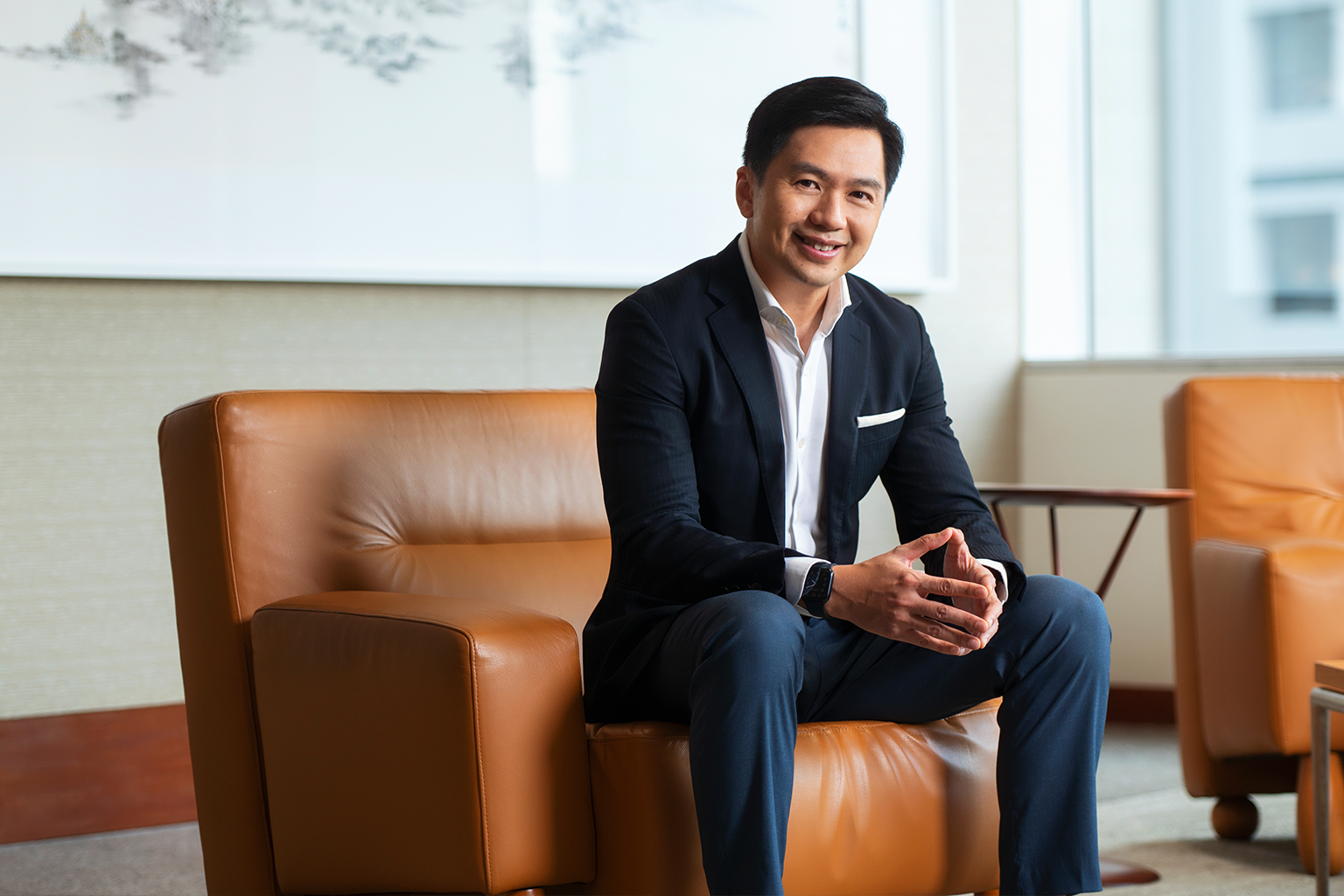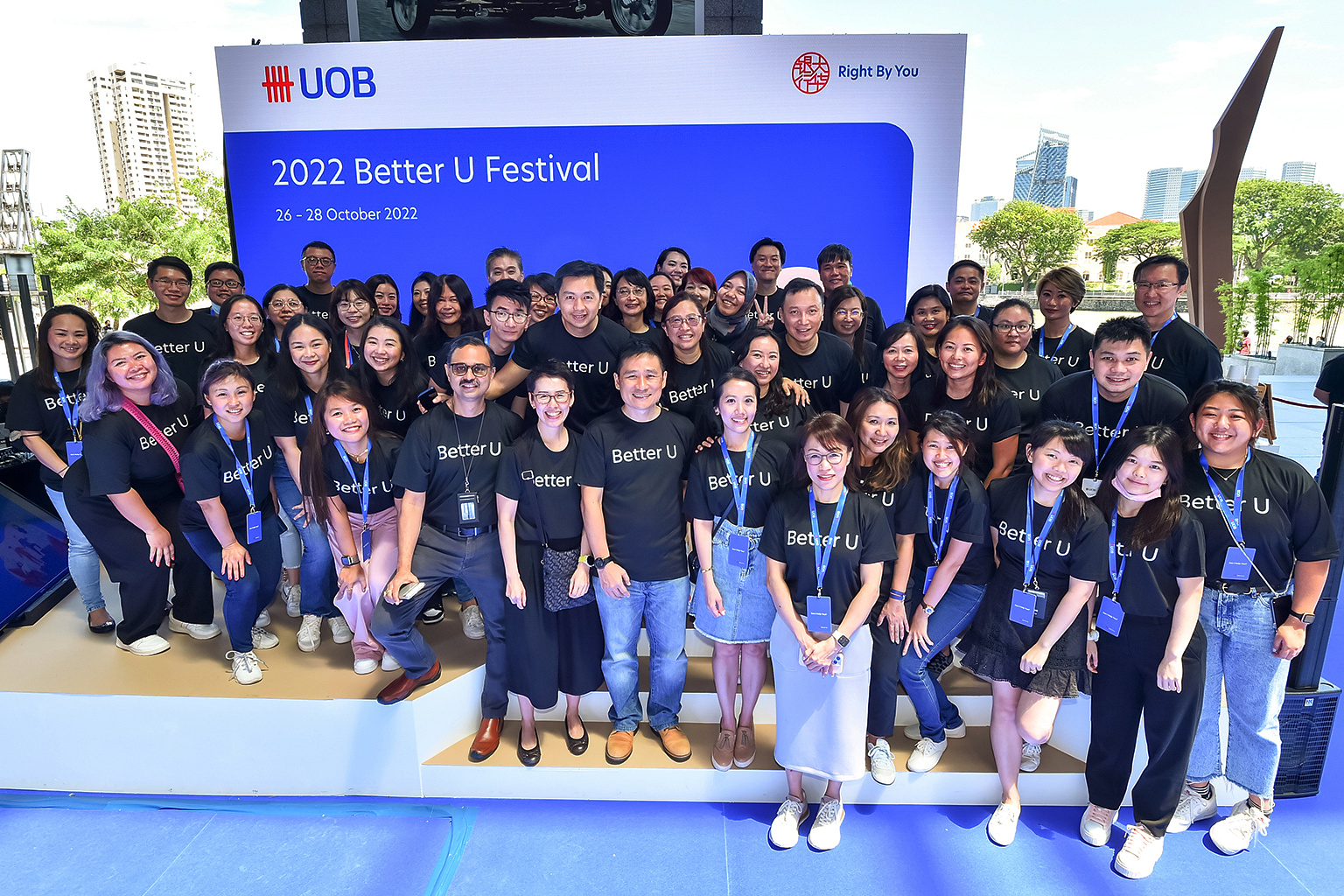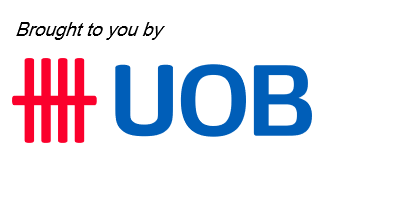BRANDED CONTENT
No meetings beyond office hours and project-based flexi-work: How this company hopes to retain talent
To create a sustainable workforce, UOB also implements a permanent two-day telecommuting arrangement, hires gig workers and upskills its employees

UOB staff in a meeting with their colleagues who are working from home. UOB has implemented a permanent two-day remote work arrangement for its employees. PHOTO: UOB
During Mr Dean Tong’s job interview, his interviewer – UOB chief executive Wee Ee Cheong – told him his job is not to help the bank maximise profit. Instead, he should focus on creating value for the customers, the employees as well as partners and stakeholders.
Mr Tong, now UOB’s head of group human resources, got the job, and since joining the bank in July 2018, he has found the credo to be a defining part of the bank’s corporate DNA to build a sustainable workforce.
“So whenever we take in someone, we have the responsibility to take care of them, whether the economy is good or bad,” says Mr Tong. The 51-year-old leads a team of 400 people in the HR division, of whom 140 are based in Singapore, to help steer a workforce of about 30,000 across the region.
And as the bank’s CEO Mr Wee highlighted in the 2021 annual report, “taking care of our customers requires that we take care of our people first”.
A strong sense of purpose with balance
The bank’s value proposition for the employees, says Mr Tong, is care, growth and trust. This translates to focusing on things that matter to the employees, caring for their personal and professional growth in the long term; while the trust factor is about empowering employees to make a difference in their work.
So what’s the key to building a sustainable workforce? According to him, while pay and benefits are important, they are not the deal breakers in the long-run.
He stresses that purpose without balance is not sustainable.
“No matter how much meaning you find in your work, if you think that is too much sacrifice for yourself, or your family, it will not be sustainable,” says the father of three daughters who makes it a point to go home for dinner every night. He shares that he starts his day at 4am with an hour of meditation and exercise, and goes to bed by 10pm.

Mr Dean Tong, head of group human resources at UOB. PHOTO: UOB
Mr Tong emphasises that purpose coupled with balance is the key to a sustainable workforce.
“We have to make sure we don’t squeeze them dry. This is not a sweatshop where after we dry out people and throw them out and hire another set of people every one or two years,” he says.
The bank also heeded the needs of its workforce for a more flexible work arrangement. In July 2022, it officially implemented a two-day remote work arrangement on a permanent basis in Singapore and its overseas offices. This is on top of existing employee wellness benefits such as Flexi-2, which gives staff an additional two hours off one work day every month to attend to personal matters and reimbursements for holistic wellness-related expenses.
To better promote a balanced way of working, UOB has issued a set of meeting etiquette that include not scheduling meetings before and after working hours, and on weekends and not having more than eight participants in a meeting.
Strengthening Singapore’s talent pool
To cope with the rapid transformation of the financial services industry in an increasingly digital economy and the challenges of a rapidly ageing population, the bank is making sure its employees are equipped with future-ready skills.
As an employer, UOB has implemented various programmes as part of its workforce transformation.

UOB's Better U is a yearly festival spearheaded by human resources to promote learning and development among employees. PHOTO: UOB
In 2019, the bank launched its Group-wide training programme, Better U, to better invest in upskilling and reskilling its people. This was followed by a gig employment programme Gig+U launched in 2021, for its retired employees to come back for short-term gig work and project-based jobs. Last year the programme was expanded into Gig+U Women, to help women with parental and caregiving duties to re-enter the workforce on a flexible basis.
UOB also launched its Group Technology and Operations (GTO) Academy last year to enable its 5,000-strong technology and operations workforce to be upskilled and certified in areas such as cybersecurity, software and IT infrastructure.
These on-going efforts are very much in line with what has been announced by the government in the recent 2023 Singapore Budget to transform and support the workforce.
New openings in technology and risk management
This year, UOB – the only local bank to have its own technology hub in Singapore – plans to hire between 400 and 500 workers for its technology needs.
Mr Tong adds that the bank has spent about over S$2 billion on technology investments over the past few years, and continues to hire people to complete some of the projects it will be running.
It plans to add a similar number for the sales positions to replace those who leave – the industry attrition rate is about 50 per cent after the first year – and to support growth.
UOB is also planning to hire between 200 and 300 people for its risk management needs, especially in the anti-money laundering space to beef up its capabilities.
UOB typically hires between 4,000 and 5,000 people on a yearly basis.
“Our people are our family, and we will do our utmost to protect and nurture them for success,” Mr Tong says.
Discover more opportunities at UOB in the UOB Careers website.



